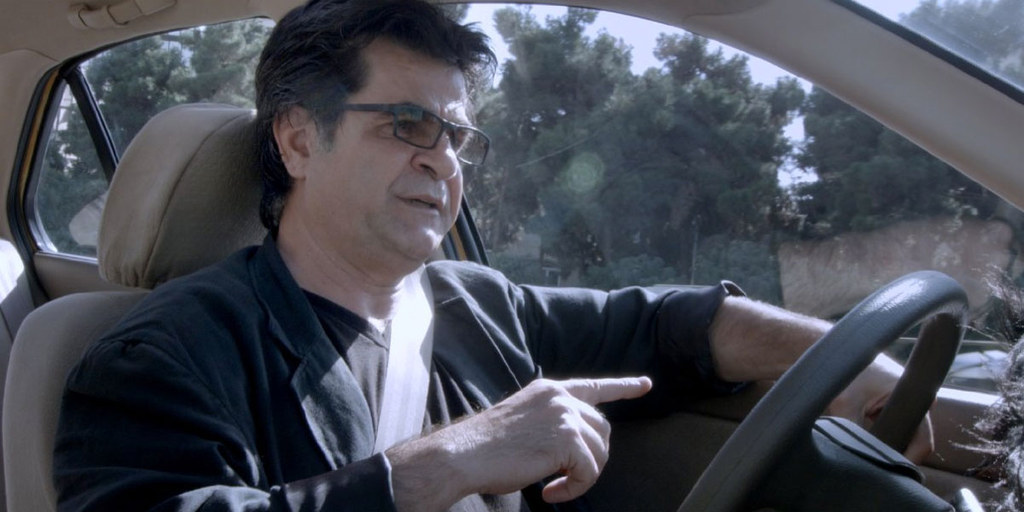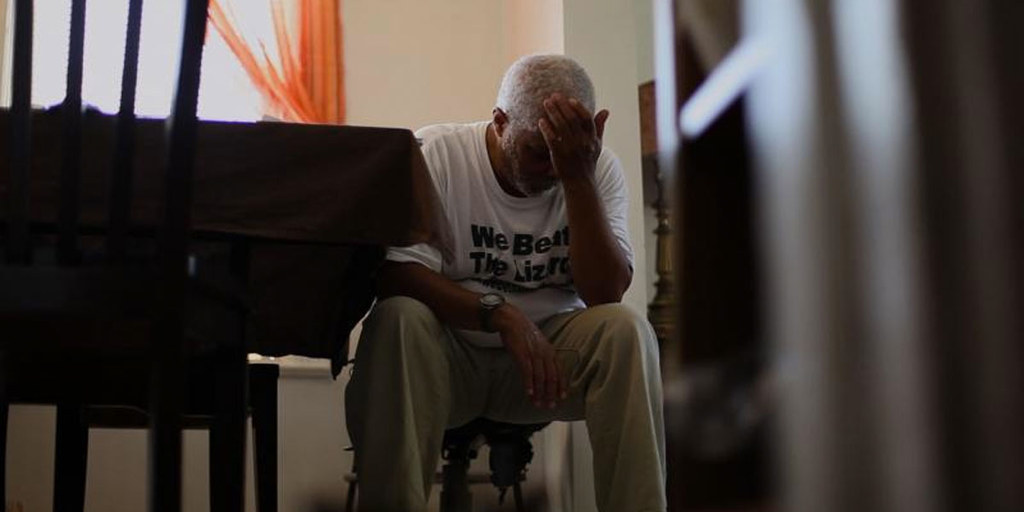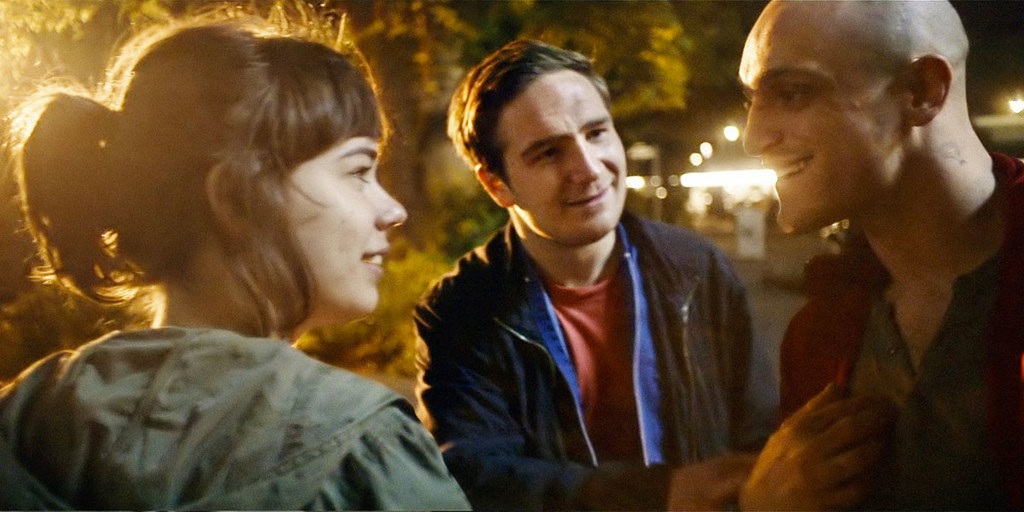1. Amour Fou

In 1811, at the age of 34, the lauded German writer Heinrich von Kleist shot Henriette Vogel and then himself in a suicide pact. Not the obvious stuff of comedy, but filmmaker Jessica Hausner finds desert-dry humor in approaching the deaths from the point of view of Henriette (Birte Schnöink), whose sensible life of bourgeois comfort is shaken up by Kleist's (Christian Friedel) befuddling attentions and a diagnosis of a terminal illness.
Kleist's proposal that Henriette die with him is pure, biting 19th century–style negging, as he informs her that she's not his first choice, but that she struck him as a fellow unloved outsider — news to the wife and mother, who'd felt plenty loved until that point. Still, she considers his offer, because Kleist talks of love and melancholia and sure seems like a man who feels strongly and wildly, even if his desire for a companion in death actually reads like a capping act of monstrous vanity. Amour Fou zestfully slices and dices romanticism, with Hausner arranging the characters in tableaus like they're constantly and uncomfortably posing for portraits. Sentimentality about the past has never looked sillier.
Where to see it: Amour Fou just came out on DVD and Blu-ray and is also available for rent online.
2. Nasty Baby

Nasty Baby starts as a sun-dappled slice of boho Brooklyn life and ends someplace much darker. The trick is all in how it slides from one to the other, setting up hints of what's to come without giving away how far it's willing to go. It is, anyway, easy to assume the movie is uncomplicatedly about investing its sympathies in its trio of main characters, a couple played by director Sebastián Silva and TV on the Radio's Tunde Adebimpe, with Kristen Wiig as the bestie with whom they're trying to get pregnant. This is the stuff earnest indie films are made of.
They're progressive, good-intentioned people who are pursuing their passions (Silva's character is an artist channeling his feelings about wanting a baby into his work) and building a family of choice in their pretty stretch of Fort Greene, Brooklyn. It's an urban paradise marred only by the presence of an unstable man (Reg E. Cathey) who's a holdover on the mostly gentrified block, a remnant of the neighborhood before it became a community of well-heeled creatives. The turn the film takes isn't a twist so much as a devastating reframing of what sort of story we've been watching, a reminder that there are serious qualifications on the inclusiveness these characters are so sure they represent. It's the kind of bold shift that makes you squirm, long after the movie's over.
Where to see it: Nasty Baby is playing in a few theaters in New York and Los Angeles and is available everywhere for digital rental.
3. Taxi

In 2010, the Iranian government banned Jafar Panahi from filmmaking for 20 years. So what to call the three features he's made since then, the first of which was actually called, with a grim wink, This Is Not a Film? They are films, of course, but they're also slippery, self-reflective, personal works about storytelling and censorship and the current state of Iran, all featuring Panahi on camera in some way. In Taxi, Panahi dabbles in a new occupation along with the one denied him by driving a cab, not all that well, through the streets of Tehran, picking up actors playing strangers, friends, and family.
A dealer of pirated videos displays his wares, two older women come toting a goldfish in a bowl they plan to release at a spring, and Panahi's niece recites the regulations on filmmaking taught to her by her teacher, among them to avoid "sordid realism" and "discussing political and economic issues." Taxi is nothing but realism, light and dark and never sordid, filtering in through Panahi's car, a million stories demanding to be told. The government may have tried to clip the director's wings, but this deceptively simple movie is more than proof that he won't be silenced — it's a masterpiece in miniature.
Where to see it: Taxi is playing in select theaters throughout the U.S.
4. (T)error

The most fascinating, unsettling turn a documentary has taken this year is the one in which (T)error directors Lyric R. Cabral and David Felix Sutcliffe get Khalifah al-Akili, the man who's the target of the FBI counterterrorism operation they're been filming, in for an interview. Until that point, the movie has been following Saeed "Shariff" Torres, who for years has been making his living as a paid informant, as he travels to Pittsburgh under agency orders to befriend al-Akili after the latter posted some pro-Taliban Facebook messages. Al-Akili quickly cottons to what Torres is up to, offering himself up to the press and, in doing so, seizing agency in the movie.
Torres is a lonely, tragic grump, and not a particularly slick guy on the informant front, trying to win his way into al-Akili's trust with Homeland recs and social media platforms he doesn't understand. Al-Akili, it becomes clear, is all talk and no actual terrorist aims. He doesn't know the filmmakers have been talking to Torres, nor the other way around, and (T)error becomes a tense, unprecedented look into a broken system of surreally clumsy investigations based on internet bluster, aimed not at uncovering conspiracies but inventing a reason to arrest someone, all in the name of keeping the country safe.
Where to see it: (T)error is now playing in select theaters around the U.S. — check out a list here.
5. Tokyo Tribe

Oh, you know, just your usual martial arts hip-hop gangland musical.
Toyko Tribe is the latest strangeness from wildly unpredictable Japanese director Sion Sono, whose filmography includes everything from a movie about haunted hair extensions to a serious drama about a family struggling in the wake of a Fukushima-like disaster. Like The Warriors meets Mad Max: Fury Road meets...Hamilton? the film is set in an alternate, futuristic Tokyo in which gangs have divvied up the city, and the dialogue is almost entirely rapped. A girl is kidnapped, and a rivalry heats up, and the city explodes into an orgy of violence and song, offering up memorable scenes like a kid breakdancing open a jail cell, a room full of living furniture, and a woman who, when told her yellow jumpsuit looks like something out of Kill Bill, disgustedly spits, "I'm Bruce!"
It's unfortunate that Tokyo Tribe has internalized some of hip-hop's lousiest tendencies toward women, a sour undercurrent the film mostly manages to remedy by later having its bloodshed explained as being the result of a literal dick measuring contest. Still, where else can you see something so joyously outrageous and overstuffed?
Where to see it: Tokyo Tribe is now playing in select theaters around the U.S.
6. Victoria

Victoria was shot in one mindboggling, unfaked two-plus-hour take that follows its title character from dancing at a club to a bank robbery. It would be worth watching just to see how it pulls this stunt off, but Victoria is also, in its own right, good. It's a movie in which the giddiness of befriending strangers in a haze of booze and loneliness gives way to something terrifying. The film is directed by Sebastian Schipper, who's also an actor — he had a role in Run Lola Run, with which Victoria shares a jittery energy, though not the magical realism.
The movie is, in a way, an epic and ill-fated meet-cute between Victoria (Laia Costa) and Sonne (Frederick Lau), a guy with a bruiser's build and a sweet affect who's wandering by the club with his equally drunk friends just as Victoria's leaving. They're fun, and she's lonely and new to town, and the group steals beers and sneaks onto a rooftop to drink until someone calls in an unfortunate favor that sets the story of the second half in motion. Victoria fudges some logic to make its unbroken stretch work, but remains believable thanks to the strength of Costa's performance. Victoria has a dark side we're given glimpses of before she decides to go along for the ride, a touch of abandon and a gluttony for life experiences that allows us to not wonder why she gets involved in Sonne's mess, and to focus instead on whether she'll make it out.
Where to see it: Victoria is now playing in select theaters around the U.S. — check out a list here.
